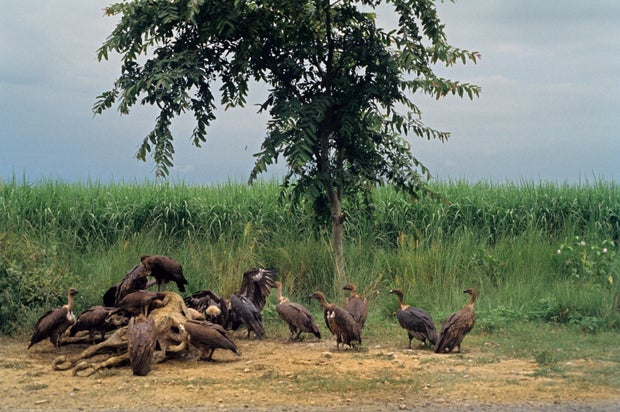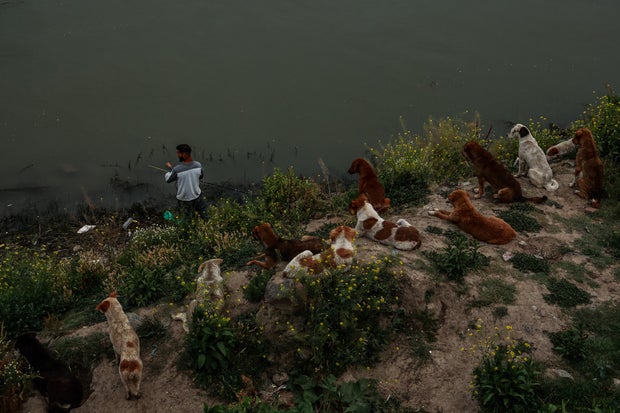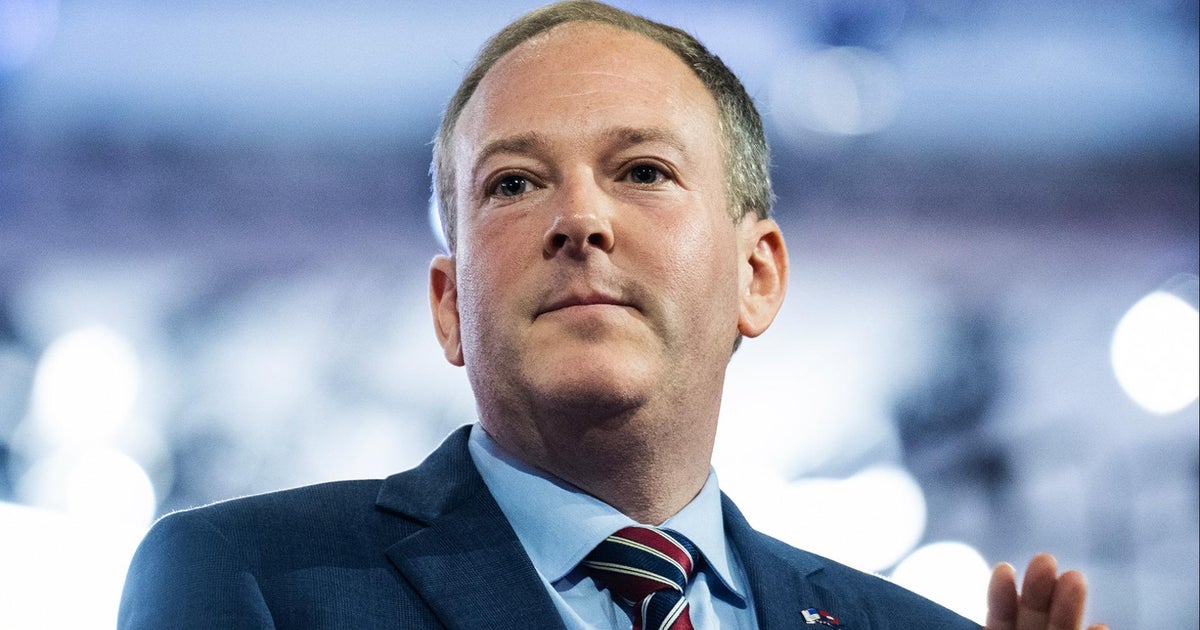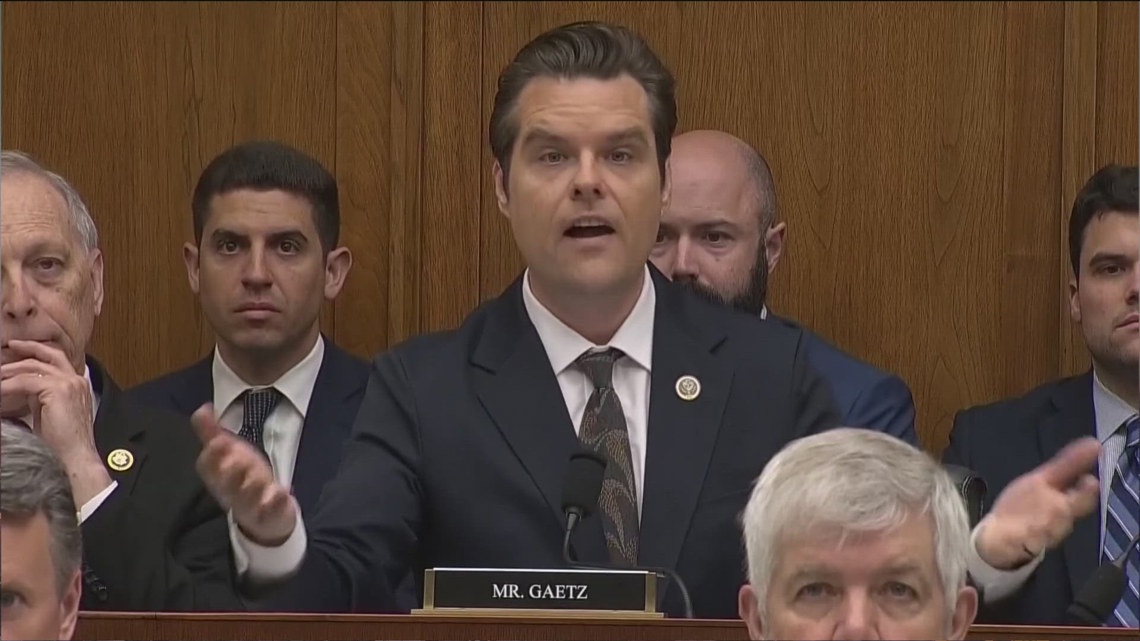CBS News
Painkiller used in cattle wiped out India’s vultures, and scientists say that led to 500,000 human deaths
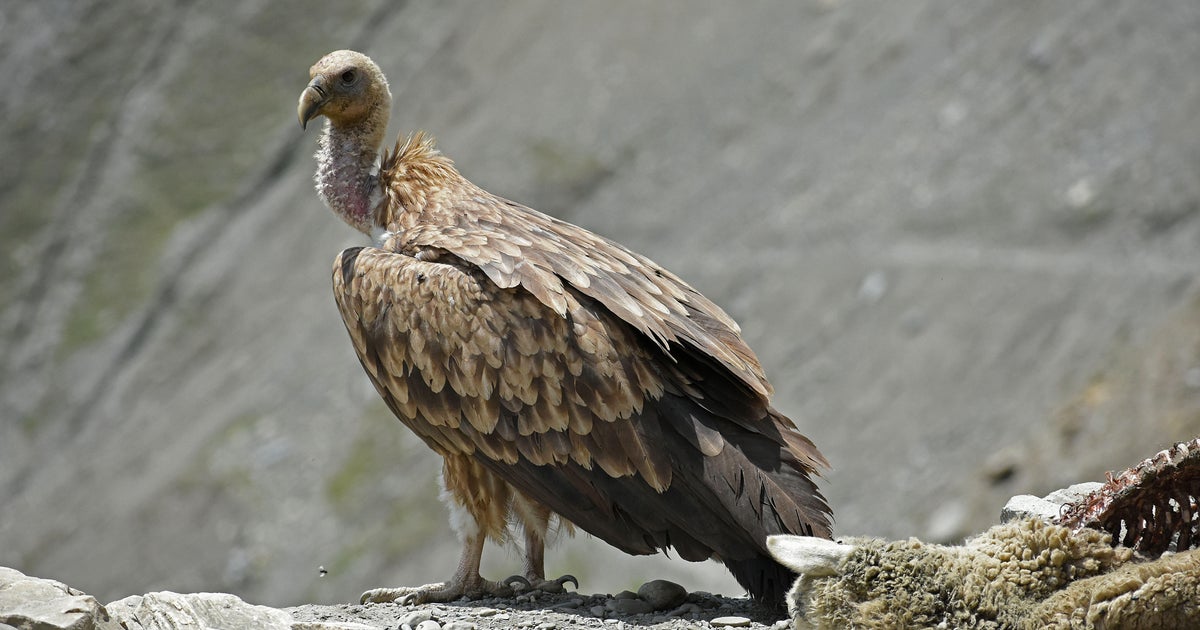
New Delhi — Scientists say Indian farmers’ eager uptake of a painkiller for their cattle in the 1990s has led to the inadvertent deaths of half of a million people and massive economic losses — not from any harm to the cattle, but from the loss of millions of vultures, scavengers that historically devoured animals’ remains before they could rot and become vectors for disease.
In early 1990s, the patent on a painkiller called diclofenac lifted, making it cheap and widely available for India’s massive agricultural sector. Farmers use it to treat a wide array of conditions in cattle. But even a small amount of the drug is fatal to vultures. Since the beginning of its widespread use in India, the domestic vulture population has dropped from a whopping 50 million to just a few thousand — and according to a study published by the American Economic Association, the impact on humans has been monumental, reflecting the vital role the scavengers play.
Vultures have been a crucial part of India’s ecosystems for centuries. According to the authors of the study, entitled “The Social Costs of Keystone Species Collapse: Evidence From The Decline of Vultures in India,” the large, homely birds are a “keystone species” — one that plays an irreplaceable role in an ecosystem.
They’re the only scavengers that feed entirely on carcasses, and they do it extremely efficiently, quickly devouring the remains and leaving little behind to spread disease. The study authors say India’s vultures would typically eat at least 50 million animal carcasses every year, before their population was decimated.
Anuwar Hazarika/NurPhoto/Getty
In doing so, they prevented the dead farm animals from rotting, and the deadly bacteria and other pathogens that thrive in carcasses from being transmitted into human populations.
“In a country like India with prohibitions on eating beef, most cattle end up turning into carcasses,” Anant Sudarshan, an associate professor of economics at the University of Warwick in England, who co-authored the study, told CBS News. “Vultures provide an incredible disposal service for free. … A group of vultures takes about 45 minutes to turn a cow carcass into bone.”
The vultures’ keen appetite also helped keep the populations of competing scavengers in check, such as feral dogs and rats, which can transmit rabies and a host of other diseases.
In 1994, farmers began giving diclofenac to their cattle and other livestock. The drug causes kidney failure and death in vultures that feed on the carcasses of animals given the painkiller, and the population of the birds shrank from 50 million to just 20,000 over the course of the ensuing decade alone.
Without the vultures around to do the job, farmers started disposing their dead livestock in local bodies of water, which caused water pollution — and another way for pathogens to reach humans.
Amit Pasricha/INDIAPICTURE/Universal Images Group/Getty
Sudarshan and study co-author Eyal Frank, an environmental economist at the University of Chicago Harris School of Public Policy, examined the impact of the drastically reduced vulture population on human health by mapping vulture habitats with health data from more than 600 districts in India. They said their research shows 100,000 human deaths every year between 2000 and 2005 could be linked with the decreased vulture populations.
It also shows economic losses they estimated at $69 billion per year, largely associated with premature human deaths due to the collapse of the scavenger population.
These deaths were caused, according to their research, by the spread of diseases that a thriving vulture population would have mitigated. Stray dog populations, and with them, the spread of rabies, also increased during the timeframe, as did the amount of bacteria measured in many local water sources.
“India is now the largest center of rabies in the world, as the feral dog population has grown dramatically,” Sudarshan told CBS News.
Nasir Kachroo/NurPhoto/Getty
Without a major vulture rebound, the study authors said the spread of disease and resulting deaths will only continue in the coming years, as will the costs associated with health care.
India did ban diclofenac for veterinary use in 2006, but Sudarshan said the ban needs to be enforced much more effectively. He and Eyal have called for more conservation funding to boost vulture populations, but they’ve warned that even if the Indian government does mount a major effort, it will take at least a decade for the species to bounce back to the extent required because they’re “slow reproducers.”
As an alternative to bringing the vultures back, Sudarshan said India could build a network of incinerators around the country, but the estimated cost of that is about $1 billion per year, and they would use a huge amount of energy and create considerable air pollution, which is already a major problem for India.
“So, it makes more sense to bring back the natural way of dealing with the millions of animal carcasses that India produces each year,” he said.
And he said that work must start urgently, as the “vultures began dying in the 1990s. India has not done anything three decades on.”
Faisal Khan/Anadolu Agency/Getty
The government does spend about $3 million per year to save India’s native tigers. Sudarshan said while vultures may be far less of a tourist attraction, there’s a broader question about “the basis of our conservation policy.”
“Our paper shows that the cost of losing them [vultures] is about $69 billion a year, which is far higher than any benefits the tiger” brings, he said, adding: “We need to think from a cost effectiveness point of view and growth view, how should we pick species to conserve?”
“Understanding the role vultures play in human health underscores the importance of protecting wildlife – and not just the cute and cuddly,” said his co-author, Frank. “They all have a job to do in our ecosystems that impacts our lives.”
CBS News
U.S. received Iran’s written assurance it was not actively trying to assassinate Trump

The U.S. received written assurance from Iran before the presidential election that its leadership was not actively trying to assassinate President-elect Donald Trump, CBS News confirmed, according to a source with direct knowledge of the correspondence. The message arrived after the White House in September affirmed that killing a former U.S. president or former U.S. official would be seen by the Biden administration as an act of war.
“We consider this a national and homeland security matter of the highest priority, and we strongly condemn Iran for these brazen threats,” National Security Council spokesman Sean Savett said in a statement in September.
Iran said in its message, which was conveyed by a third party, that it understood this premise. The Wall Street Journal first reported Iran’s message to the U.S.
The Justice Department is currently prosecuting at least two individuals alleged to have been part of murder-for-hire plots to kill Trump while he was still a candidate. One operative working for Iran’s Islamic Revolutionary Guard Corps told federal investigators that he was tasked in September with “surveilling, and, ultimately, assassinating” Trump, according to court records unsealed last week.
Prosecutors said Farhad Shakeri, who is believed to be residing in Iran, told investigators in a phone interview that unnamed IRGC officials pushed him to plan an attack against Trump to take place in October. If the plan could not come together in time, the Iranian officials directed Shakeri to delay the plot until after the election because the official “assessed that [Trump] would lose the election,” the charging documents said.
In early August, a Pakistani national with alleged ties to Iran was arrested and charged with plotting a murder-for-hire scheme targeting U.S. government officials and politicians, according to charging documents unsealed Tuesday.
A U.S. official pointed out that Iran did not task its most effective proxy force, Hezbollah, with carrying out these plots. This official described Iran’s approach to date as “nice if it works. If it doesn’t, then it’s not a problem.”
In response to inquiries suggesting that “Iran told U.S. it wouldn’t try to kill Trump”, the Permanent Mission of the Islamic Republic of Iran said it would not comment on official messages between two countries.
The mission said in a statement, “The Islamic Republic of Iran has long declared its commitment to pursuing Martyr Soleimani’s assassination through legal and judicial avenues, while adhering fully to the recognized principles of international law.”
Trump has raised the ire of Iranians for a few reasons. He exited the international Iran nuclear agreement, which had lifted some sanctions in exchange for restrictions on Iran’s nuclear program. He also directed the 2020 airstrike that killed top Iranian commander Gen. Qasem Soleimani. Since then, some Trump administration officials and military officials received threats from the regime, among them, Robert O’Brien, who was national security adviser during the strike. His predecessor in the job, John Bolton, who was part of the maximum pressure campaign that exerted sanctions pressure on Tehran, has also received threats.
In 2022, the U.S. intelligence community assessed that Iran would threaten Americans — both directly and via proxy attacks — and was committed to developing networks inside the U.S. Two persistent threat assessments submitted to Congress by the State Department in January 2022 cited a “serious and credible threat” to the lives of former Secretary of State Mike Pompeo and former Trump administration Iran envoy Brian Hook. The non-public assessments showed that throughout 2021 and again in 2022, the State Department determined that round-the-clock, U.S.-taxpayer-funded diplomatic security details were needed to protect both men. That continues today.
Multiple former officials have spoken to CBS about duty-to-warn notices that they have recently received from the FBI and other agencies regarding the ongoing threat from Iran and Iranian-hired actors, implying the U.S. is taking the threat seriously and not taking the Iranian regime’s assurances at face value.
contributed to this report.
CBS News
National security implications of Trump’s Cabinet picks

Watch CBS News
Be the first to know
Get browser notifications for breaking news, live events, and exclusive reporting.
CBS News
Doctor explains how RFK Jr.’s plans could affect Americans’ health

Watch CBS News
Be the first to know
Get browser notifications for breaking news, live events, and exclusive reporting.



